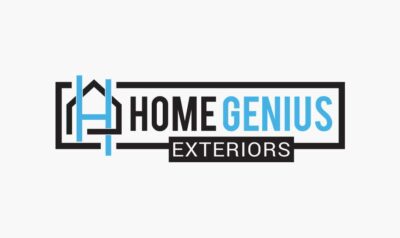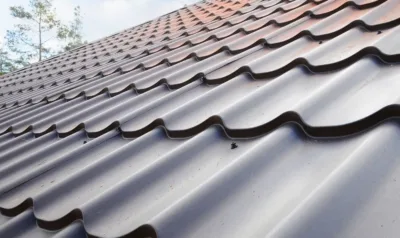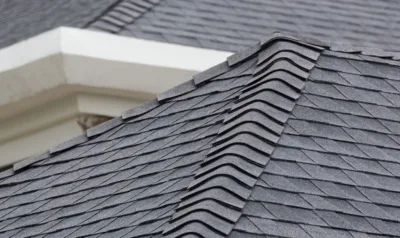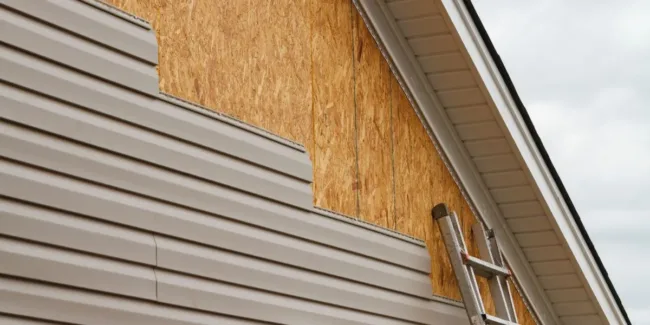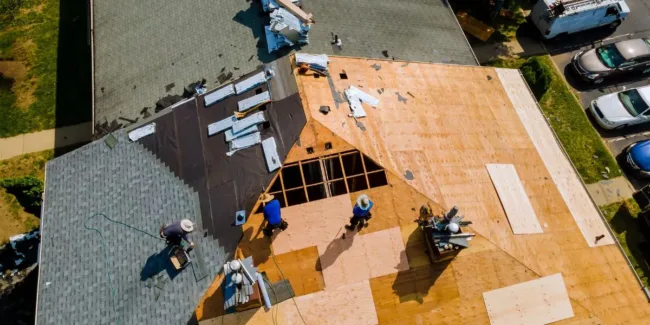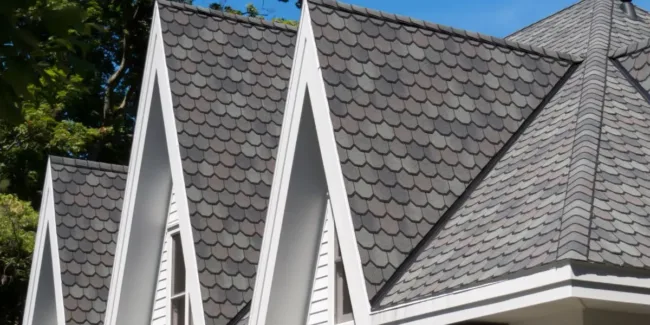What Is The Best Siding for Maryland Homes?
The best siding materials for Maryland’s diverse climate are fiber cement and insulated vinyl siding. Fiber cement offers superior durability, fire resistance, and long-term protection against moisture and storms, while insulated vinyl siding provides excellent energy efficiency, low maintenance, and affordability. Together, these materials represent the best balance of strength, weather resistance, and visual appeal for Maryland homes.
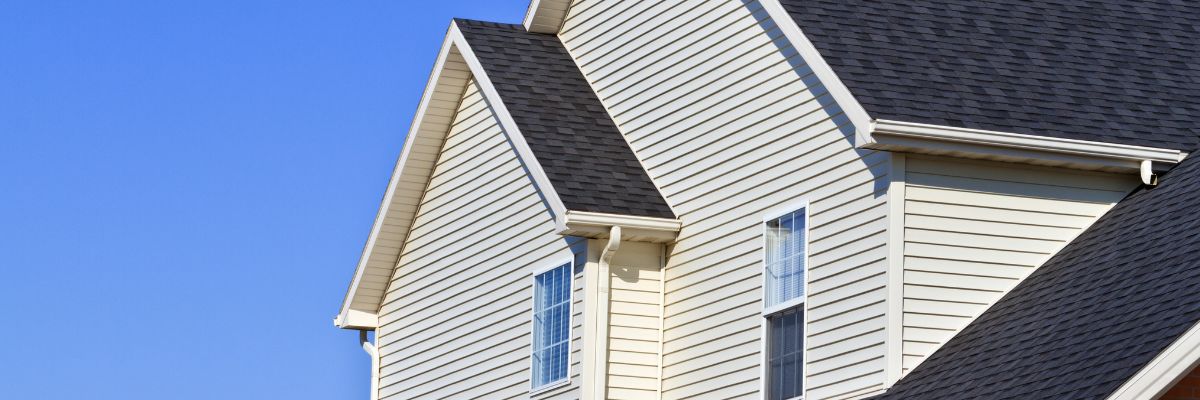
Fiber Cement Siding
Fiber cement siding is a premium choice known for its exceptional durability, making it one of the most recommended materials for Maryland homes, especially in coastal regions. Built to withstand the region’s challenging climate, fiber cement resists warping, cracking, rotting, and insect damage—even in the face of humid summers, freezing winters, and frequent storms.
It also offers the visual appeal of traditional wood siding without the demanding upkeep. One of its standout benefits is its natural fire resistance, which adds an extra layer of protection. This material holds paint well, meaning homeowners can enjoy vibrant, long-lasting color with minimal fading over time.
James Hardie fiber cement products are especially popular in the Mid-Atlantic region and are commonly used by contractors for their proven performance. With a lifespan of 30 to 50 years or more, fiber cement is ideal for homeowners seeking a low-maintenance, high-performance solution that delivers both protection and curb appeal across all areas of Maryland.
Advantages:
- Resists warping, cracking, rot, and insect damage
- Withstands Maryland’s heat, humidity, frost, and storm exposure
- Mimics the look of traditional wood without the same maintenance demands
- Naturally fire-resistant
- Holds paint well and resists fading for years
Popular Brands: James Hardie fiber cement products are especially suited to the Mid-Atlantic climate and widely used by Maryland contractors.
Longevity: 30 to 50+ years
Best For: Homeowners who want a low-maintenance, high-performance material that works well across all regions of Maryland.
Vinyl Siding (Including Insulated Vinyl)
Vinyl siding remains the most widely used siding material in Maryland thanks to its affordability, ease of installation, and reliable all-season performance. It stands up well to both hot summers and cold winters, making it suitable for the state’s temperature extremes.
Vinyl is naturally resistant to moisture, mold, and UV damage, helping to preserve its appearance without requiring repainting or sealing. Available in a vast array of colors, styles, and textures—from traditional lap siding to modern vertical panels—vinyl offers plenty of design flexibility.
Insulated vinyl siding adds an additional layer of thermal protection, reducing heat transfer and improving energy efficiency in both summer and winter months. With a lifespan ranging from 20 to 40 years when properly maintained, vinyl siding is a smart, budget-friendly option for homeowners who want low maintenance and long-lasting value without sacrificing visual appeal.
Advantages:
- Affordable and easy to install
- Withstands both hot summers and cold winters
- Resistant to moisture and UV damage
- Available in a wide range of colors and textures
- Insulated versions improve thermal performance and reduce energy bills
Lifespan: 20 to 40 years with proper care
Best For: Budget-conscious homeowners who want long-lasting, low-maintenance siding with plenty of design flexibility.
Composite Siding
Composite siding is a modern, eco-conscious material that blends wood fibers with plastic resins to deliver strength, style, and sustainability. Designed to handle the elements, composite siding is highly resistant to rot, pests, moisture, and UV damage, making it a strong choice for Maryland’s changing weather conditions.
It requires very little upkeep and retains its appearance for years without fading or warping. Many products are manufactured using recycled materials, appealing to environmentally conscious homeowners. Composite siding is available in a range of finishes that mimic wood or provide smooth, contemporary looks, offering both aesthetic variety and durability. It also contributes to energy efficiency by providing moderate insulation. With a lifespan of 30 to 40 years, composite siding is ideal for homeowners who want a modern exterior that’s attractive, tough, and easy to maintain.
Advantages:
- Highly resistant to rot, pests, moisture, and UV damage
- Requires little maintenance
- Made with recycled or sustainable materials
- Offers the look of wood or smooth finishes in various styles
- Provides decent insulation for improved energy efficiency
Lifespan: 30 to 40 years
Best For: Environmentally conscious homeowners seeking stylish, modern exteriors with minimal upkeep.
Engineered Wood Siding
Engineered wood siding is an excellent alternative to traditional wood, offering the same authentic grain appearance with far better performance and less maintenance. It is specially treated to resist moisture, mold, and insect damage—features that are essential for Maryland’s humid conditions and unpredictable weather.
Unlike natural wood, engineered wood handles seasonal temperature fluctuations and humidity without warping or cracking. It is lighter than fiber cement and easier to install, which can help lower labor costs. The material maintains a realistic wood texture and can be painted or stained to match various architectural styles. With proper care, engineered wood siding can last 20 to 30 years or more, making it a smart investment for homeowners who love the look of wood but want improved durability and reduced upkeep over time.
Advantages:
- Treated to resist moisture, insects, and mold
- Handles Maryland’s humidity and temperature swings better than natural wood
- Maintains a realistic wood texture
- Easier to install than fiber cement
Lifespan: 20 to 30 years or more with proper maintenance
Best For: Homeowners who love the look of wood but want better durability and lower long-term costs.
Performance Comparison Table
| Siding Type | Durability | Weather Resistance | Maintenance | Cost | Best For |
|---|---|---|---|---|---|
| Fiber Cement | Excellent | Excellent (heat, frost, storms) | Low | $$–$$$ | All Maryland regions and home styles |
| Vinyl (Insulated) | Very Good | Very Good (humidity, cold) | Very Low | $–$$ | Budget-friendly and versatile |
| Composite | Very Good | Very Good (moisture, sun, pests) | Low | $$–$$$ | Eco-friendly and low-maintenance |
| Engineered Wood | Good–Very Good | Good (moisture, insects) | Low–Moderate | $$–$$$ | Real wood appearance, easier upkeep |
Key Considerations for Maryland Homeowners
Moisture and UV Resistance
Maryland’s mix of humidity, rain, and sun means your siding needs to resist moisture and fading. Fiber cement, composite, and vinyl all hold up well in these conditions. Natural wood, while beautiful, is more vulnerable to water damage unless consistently sealed and maintained.
Maintenance Requirements
Low-maintenance siding is preferred by most homeowners. Fiber cement, composite, and vinyl require only periodic cleaning or repainting. Engineered wood needs occasional sealing, while cedar siding demands regular upkeep to stay in good condition.
Energy Efficiency
Maryland’s temperature swings call for siding with insulation potential. Insulated vinyl, composite, and fiber cement with rigid foam backing can help reduce heating and cooling costs. Proper installation with weather barriers and house wrap further improves efficiency.
Style and Aesthetics
Siding has a major impact on your home’s curb appeal. Neutral colors such as gray, beige, and white remain popular in Maryland, often paired with bold trim accents or natural textures. Fiber cement and engineered wood offer the most authentic wood appearance, while vinyl and composite provide greater color versatility.
Professional Installation
Siding installation requires precision to prevent moisture intrusion and structural issues. Always hire certified siding contractors who understand Maryland’s building codes and climate conditions. Correct flashing, caulking, and drainage systems are essential for long-term performance.
Recommendations
Best Overall Performer
Fiber cement siding is the top choice for Maryland homes. It delivers exceptional resistance to weather, fire, and pests while maintaining a wood-like appearance and low maintenance needs. Its longevity makes it ideal for homeowners looking for durability and style.
Best Budget-Friendly Option
Vinyl siding offers a great balance of performance and affordability. It is easy to maintain, withstands Maryland’s climate, and comes in a wide range of styles. Opt for insulated vinyl to improve comfort and energy savings.
Best for Sustainability and Low Upkeep
Composite siding is a smart choice for homeowners who want modern, eco-conscious siding. It lasts for decades, needs minimal care, and provides reliable insulation and strength.
Best for Traditional Appeal
Engineered wood siding and cedar siding are ideal for homes that aim to preserve a rustic or historic charm. While these materials require more maintenance, they offer a warm and timeless look that blends well in many Maryland neighborhoods.
Conclusion
Selecting the best siding for your Maryland home means weighing durability, energy efficiency, style, and maintenance. Fiber cement stands out for its overall strength and all-climate performance. Vinyl provides budget-friendly reliability, while composite offers a sustainable, modern solution. For those drawn to classic charm, engineered and natural wood sidings offer beauty with varying levels of upkeep.
Ready to upgrade your home’s exterior? Contact Home Genius Exteriors for expert siding recommendations, top-quality materials, and professional installation tailored to Maryland’s climate. Whether you’re interested in durable fiber cement, energy-efficient insulated vinyl, or low-maintenance composite siding, our team will help you choose the best solution for your home’s performance and curb appeal. Schedule your free consultation today and protect your investment with siding that’s built to last.
